I approached a wiry, bespectacled librarian with the catalogue number, and he disappeared into a closed-off area of the library. When he returned several minutes later, he handed me a lengthy form and a ballpoint pen.
“You have to fill this out first,” he said. “For security purposes. And I will need some identification.”
This put me in an uncomfortable position, because filling in such forms would leave a dangerous paper trail. American intelligence agents would surely be very interested to learn that two Iraqi men had asked to see a centrifuge report at the University of Virginia. We couldn’t afford to leave such a revealing piece of evidence, particularly at the very outset of our secret program.
“Would it be possible to ensure that the report is indeed here,” I asked, “before I fill out all these forms for it?”
The librarian gave me an annoyed look, then returned to the back section of the library. We waited at his desk for what seemed like hours. Next to me, Dr. Farid fidgeted and began to sweat.
“Do you think he will call the authorities?” Dr. Farid whispered.
“Don’t worry,” I said. “We are in a university, making an everyday request. He is probably having trouble finding the report.” But I shared his nervousness. The word “security” triggered a subconscious reaction of fear in both of us. In Iraq, it usually meant just the opposite. Dr. Farid’s seemingly irrational notion suddenly took hold of me. What if a request for the Zippe report triggered an automatic security alert? If the librarian made a phone call and we were questioned, our cover story that we were from the University of Baghdad would hardly hold up. I thought of the awful consequences if Hussein Kamel learned we had exposed ourselves through such a foolish blunder. To my relief, the librarian finally returned with a thick sheaf of papers in one hand.
“Here it is,” he said, holding it back from us.“Now please fill out these forms.”
“Could I see it for a moment to be sure it is the right document?”I asked.
He handed me the report and watched closely as I took it to a nearby table and flipped through its pages. As I had hoped, it was a key piece of literature. It did not contain blueprints or dimensions of centrifuge pieces but offered a broad view of the engineering principles behind the magnetic centrifuge. It was exactly the primer
our team needed. But there was no way of reading it without filling out the release forms, and almost certainly no way of copying it. I noticed the librarian glowering at me several feet away. I intently scanned the chapter headings of the report while trying to appear as though I were only riffling through the pages.
“Is that what you are looking for?” the librarian asked impatiently.
“I’m still not sure,” I said.
I knew I had only a few more seconds to look at the report. Then I came to an appendix that listed the recipients of the report when it was first issued in 1960: the holders of the precious few copies. Scanning down the list, I recognized the name of a Milan based professor [from whom Obeidi acquired the report via his onetime colleague Dr. Giorgio Morandi, in Milan] associated with the Italian nuclear program. That was the piece of information I needed. (p. 77-78)





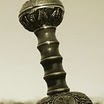


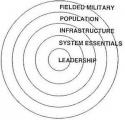

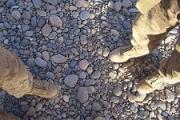
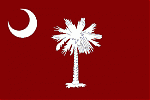
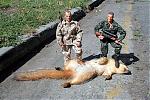

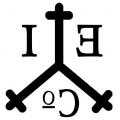
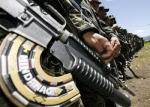
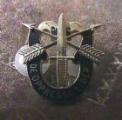
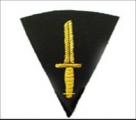
 ). "Guerrilla Warfare" by Ernesto "Che" Guevara is a bit of a ho-hum in comparison.
). "Guerrilla Warfare" by Ernesto "Che" Guevara is a bit of a ho-hum in comparison.
Bookmarks